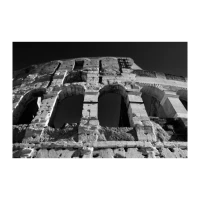
Latest Version
1.8.6
September 08, 2025
Ant Bee Dev
Entertainment
Android
0
Free
id.antbeedev.Roman.Mythology.Offline
Report a Problem
More About Roman Mythology
The Intersection of Roman Tradition and Supernatural Elements in Literature
The Romans often regarded their traditional narratives as historical accounts, even when these tales incorporated supernatural or fantastical elements. This unique perspective shaped their storytelling, intertwining politics, morality, and personal integrity with the broader responsibilities towards the community and the Roman state.
Understanding Roman Literature: A Historical Perspective
Roman literature serves as a fascinating lens through which we can explore the cultural and societal values of ancient Rome. The Romans had a distinctive way of interpreting their narratives, often blurring the lines between fiction and history. This approach allowed them to convey moral lessons and political commentary through their stories, making them relevant to their contemporary society.
Supernatural Elements in Roman Narratives
While many Roman tales feature supernatural occurrences, these elements are not merely for entertainment. Instead, they serve to enhance the narrative's moral and political themes. The inclusion of gods, spirits, and otherworldly phenomena often reflects the Romans' beliefs and societal norms, providing insight into their worldview.
Politics and Morality: The Core of Roman Storytelling
At the heart of Roman literature lies a deep connection between personal integrity and civic duty. Characters in these stories frequently grapple with moral dilemmas that reflect their responsibilities to their community and the state. This interplay between individual ethics and societal expectations is a recurring theme, illustrating the Romans' belief in the importance of virtue and honor.
The Role of Tournaments in Roman Culture
Tournaments and public spectacles were significant aspects of Roman life, often depicted in literature as a means of showcasing bravery, skill, and honor. These events not only entertained the masses but also served as a platform for political maneuvering and social commentary. Through the lens of tournaments, authors could explore themes of competition, loyalty, and the consequences of ambition.
Religious Practices and Rituals in Roman Literature
When Roman stories delve into religious practices, they focus more on rituals, powers, and institutions rather than abstract theological concepts. This emphasis on the tangible aspects of religion highlights the importance of communal practices and the role of the state in religious affairs. The narratives often reflect the intricate relationship between religion and politics, showcasing how divine favor was sought to legitimize authority and governance.
Conclusion: The Enduring Legacy of Roman Literature
The rich tapestry of Roman literature, woven with threads of history, morality, and the supernatural, continues to resonate today. By examining these narratives, we gain valuable insights into the values and beliefs that shaped Roman society. The interplay of personal integrity, civic responsibility, and the exploration of religious practices not only defines Roman storytelling but also offers timeless lessons that remain relevant in contemporary discourse.
In summary, the Romans' unique approach to literature, where history and the supernatural coexist, provides a profound understanding of their cultural identity. Through their stories, we can appreciate the complexities of human nature and the enduring impact of moral and political themes that transcend time.
Rate the App
User Reviews
Popular Apps










Editor's Choice































